Have you ever wondered if your trusty air conditioner has seen better days? Not sure whether to keep repairing it or take the plunge and get an upgrade? Knowing the signs that indicate it’s time for an AC system upgrade can save you major headaches (and unnecessary expenses) down the road.
Picture this: You’re lounging in your charming, vintage home on a day when the summer sun blazes relentlessly. There’s something almost poetic about how the sunlight dapples the original hardwood floors and casts a warm, golden glow on the antique furniture, a testament to your home’s storied past. However, there’s a glaring paradox within this picturesque scene.
Despite the aesthetic appeal of your older home, the sweltering heat is unforgiving. It has you dabbing beads of sweat off your forehead more often than you’d like. The air seems to have become thick, heavy, and uncomfortably warm – and despite your air conditioning running on full blast, the refreshing coolness it should provide feels like a distant memory.
That old HVAC system, like a vintage car struggling to keep pace with its more modern counterparts, labors tirelessly, trying to maintain a semblance of comfort in your home. You hear it wheezing and coughing, stubbornly fighting against the odds, and all you can do is hope that it’ll push through. But somewhere deep down, you know – as much as you love the nostalgic charm of your home, your dated air conditioning system might be gasping its last breaths.
Yet, it’s not a scene of despair. Think of it more like a call to action – a nudge towards improvement. It’s about turning a challenge into an opportunity. After all, your home is more than just a structure. It’s a living, breathing entity that evolves with you, reflecting your tastes and lifestyles. So, why should your AC system be any different?
Stay tuned, as we take you on an engaging journey into the world of HVAC upgrades. Together, we’ll help you determine if your air conditioner has indeed sung its swan song, or if it simply needs a nudge to get back into its groove. This journey is more than just about replacing old with new; it’s about creating a harmonious blend of efficiency and comfort, taking your home from “just fine” to “just fabulous.”
So, let’s dive into some key indicators that suggest your air conditioning system might be ready for retirement. Trust me, your comfort – and your wallet – will thank you!
But before then…
How to Save on Your Air Conditioning Upgrade
Ready to upgrade but worried about the cost? No problem! Here are a few tips for saving money when dealing with an AC company.
- Look for Deals: HVAC companies typically offer discounts on new systems at certain times, such as off-peak times or when the season is drawing to a close.
- Sizing Matters: Be careful with the size of the unit. An oversized or undersized system can lead to inefficient operation, higher energy costs, and even a shorter lifespan for the equipment. Consult with a professional to make sure you’re getting a unit that’s the right size for your home.
- Pick Energy-Efficient Models: Consider investing in an energy-efficient model, even if the initial cost is higher. Look for a system with a high Seasonal Energy Efficiency Ratio (SEER) rating and with the ENERGY STAR label – it’ll save you cash on electricity bills in the long run.
- Consider Rebates and Incentives: Many utility companies offer rebates and incentives for upgrading to energy-efficient models. Additionally, government programs may provide tax credits for energy-efficient home improvements. Check with your local utility company or research online to see what incentives might be available to you.e tips in mind, and your wallet will thank you during your next air conditioning upgrade.
- Get Multiple Quotes: When it comes to installation, don’t go with the first quote you get. Shop around and get quotes from several contractors. But remember, the cheapest option isn’t always the best. Consider the contractor’s reputation, reviews, and warranty offers as well.
If all else fails, check for financing options. Many HVAC companies offer financing plans that can spread the cost over several years, making the upgrade more manageable financially.
Remember, the goal of upgrading isn’t just to replace old with new; it’s to improve comfort, increase energy efficiency, and ultimately save money in the long term. By considering these tips, you can turn the potentially daunting task of upgrading your central air conditioning system into a smart investment for your home and future.
Signs That It’s Time to Upgrade Your AC System
Knowing when to upgrade your central AC system can save you from the discomfort of an unexpected breakdown, not to mention the potential cost savings from increased efficiency. Here are the top nine signs that it might be time to consider an upgrade:
1. Age of the AC System
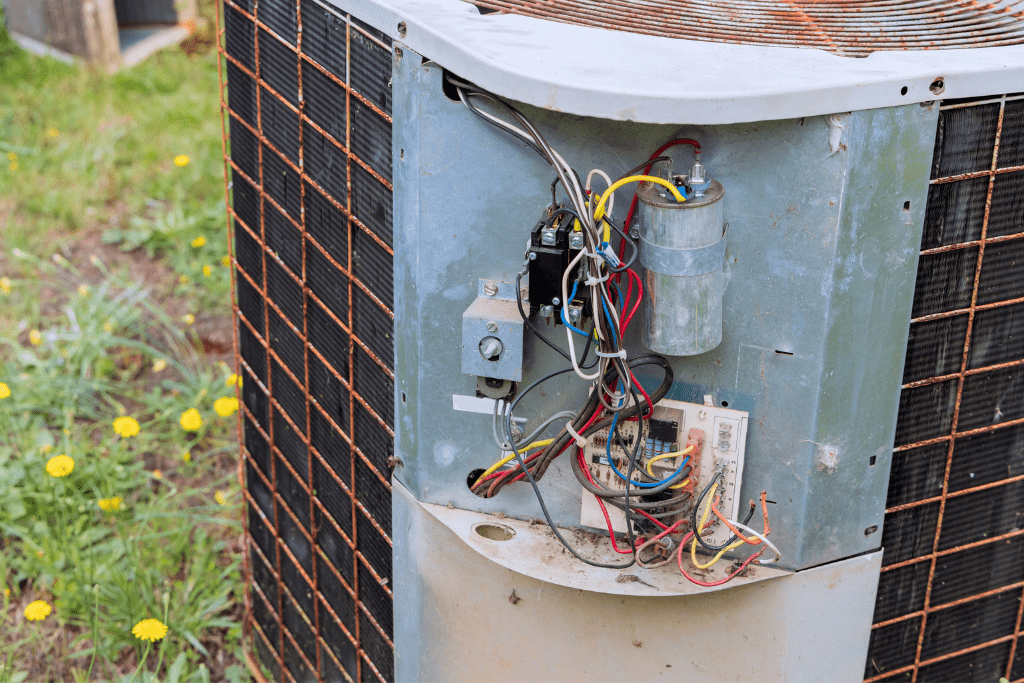
The age of your air conditioning system plays a significant role in determining whether it’s time for an upgrade. A majority of AC units have a lifespan of around 15 years. Their performance tends to decline after that.
Once your system is nearing this milestone or has already gone past it, you should probably start considering an upgrade. Not only do older systems become less efficient with time, but they may also need more maintenance and repairs as their components wear down.
By keeping the age factor in mind, you can make informed decisions about replacing your AC system to ensure consistent comfort and energy efficiency at home.
2. Frequent Repairs
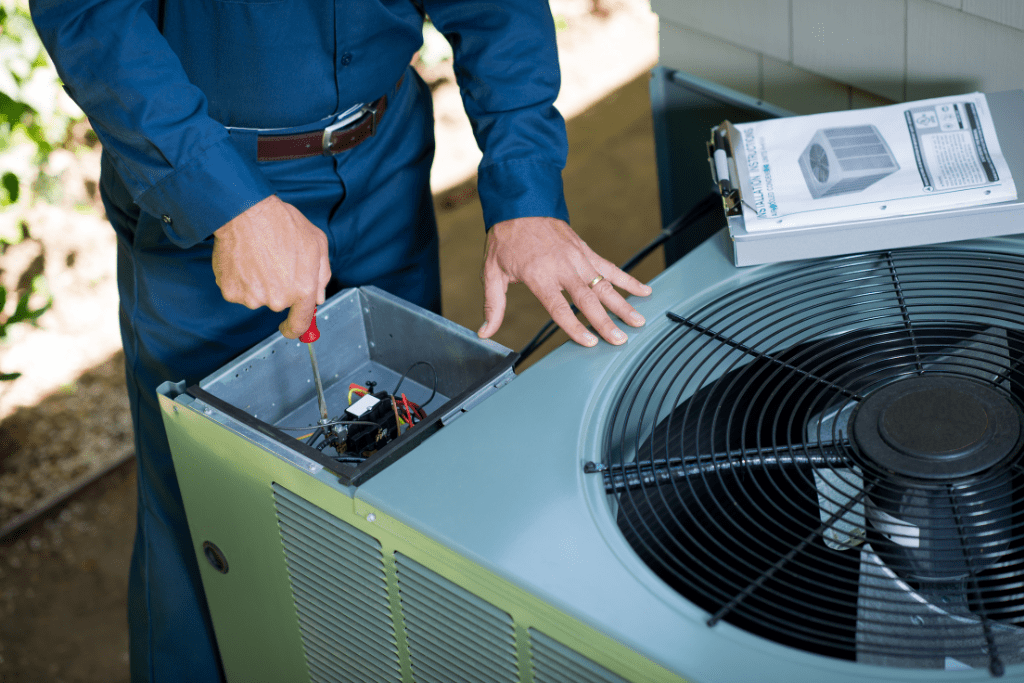
Do you ever notice you’re constantly dealing with repairs on your AC system? Like calling a technician over and over to fix different issues? That’s definitely a red flag that something isn’t quite right.
As air conditioning units age, they tend to require more maintenance and repairs because their parts become worn down. Continually dealing with repairs not only disrupts your daily comfort but could also become quite expensive in the long run.
In cases like these, investing in a new AC system might make more sense financially and save you from any added headaches.
3. Higher Energy Bills
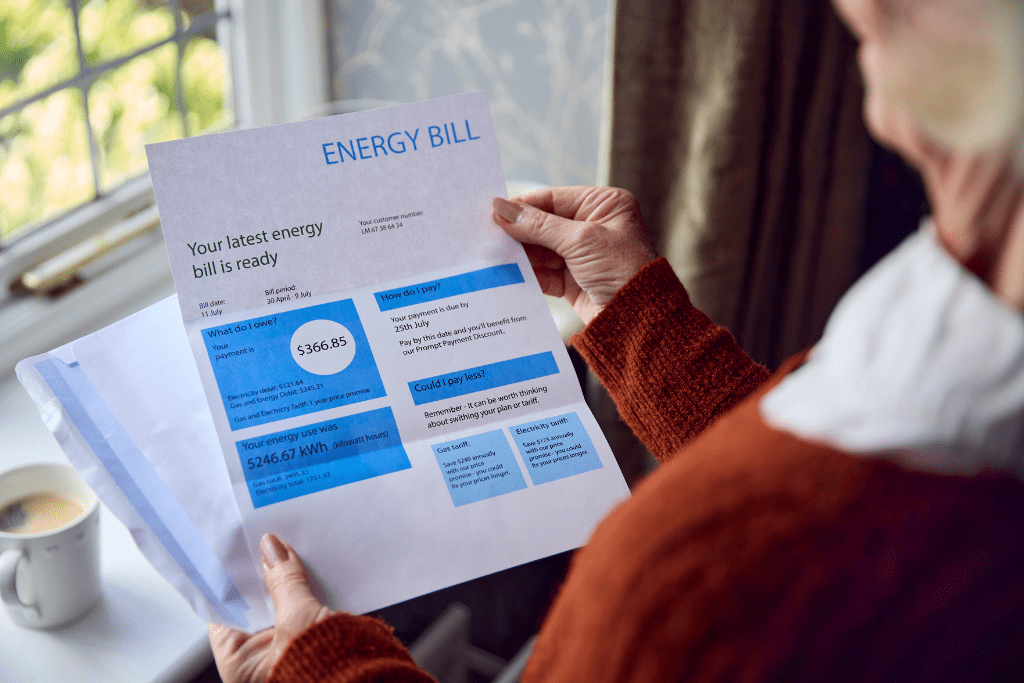
Now let’s talk about something everyone cares about – energy bills! Have you noticed that you have had an issue with your energy bills in the recent past? Well, one possible reason for this could be your old AC system.
You see, as these units get on in years, they often become less efficient, which means they need more power to keep your home cool.
So yeah, that’s going to impact your wallet. Upgrading to a newer, energy-efficient system can actually save you money in the long run, and who doesn’t want lower utility bills, right?
4. Inconsistent Cooling At Home
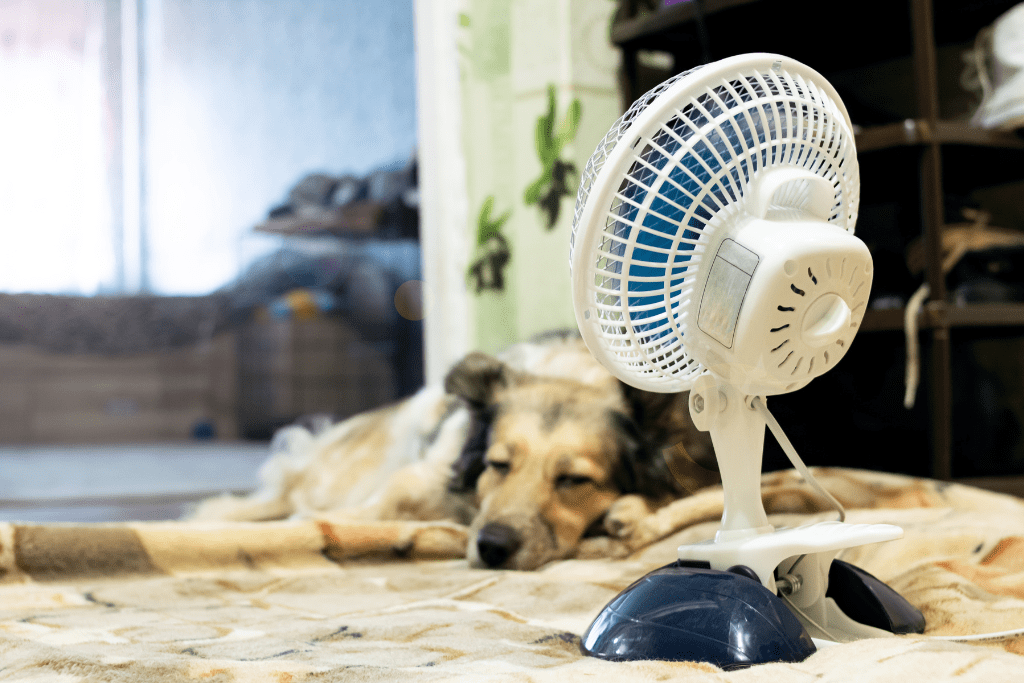
Let’s discuss another important clue that it might be time to upgrade your AC: inconsistent cooling in your home. Ever been from room to room and noticed some are super chilly while others are borderline sauna?
That’s definitely not ideal, and a struggling AC system might be the culprit. When you’ve got an outdated or too-small unit, it can have a hard time keeping up with the cooling demands of your entire home.
A new air conditioner will bring back balance in terms of temperature and make sure all your rooms stay equally comfortable.
5. Outdated Refrigerants Usage or Leaks
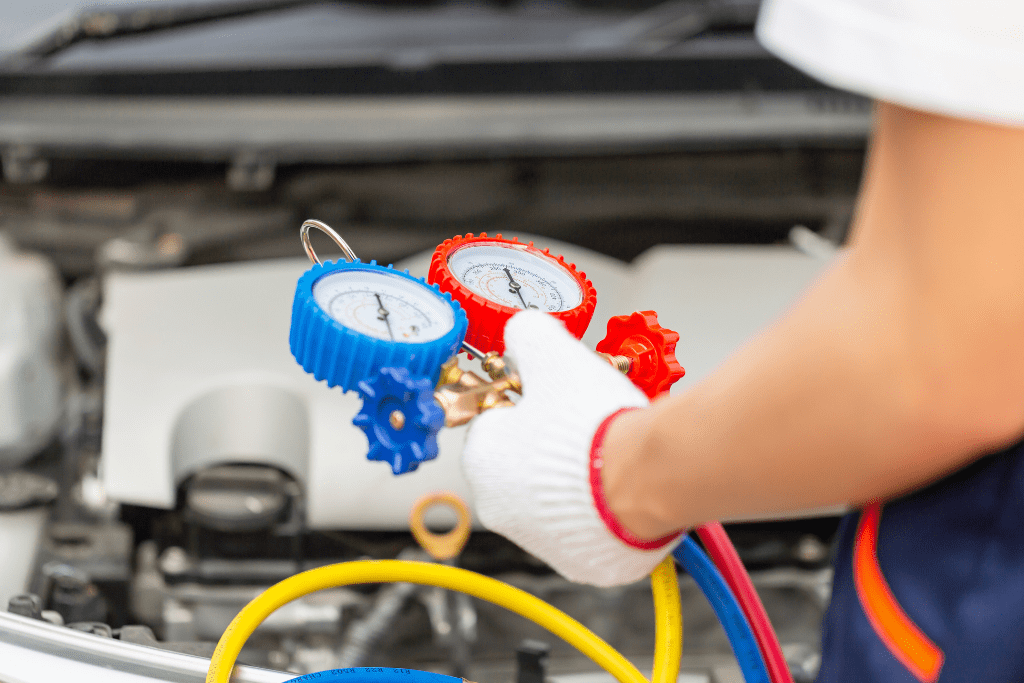
Now here’s a sign that’s not only about comfort but also about being environmentally friendly. Are you aware of the type of refrigerant that your AC system uses? Many older units rely on R-22 refrigerant, which is slowly being phased out because it’s kind of bad for the environment.
Switching to a newer AC system allows you to use refrigerants like R-410A, which are definitely more eco-friendly. So, if you care about our planet (which I’m sure you do), upgrading might be the responsible choice – and it’ll keep your home cool and comfy too.
6. Excessive Noise Levels
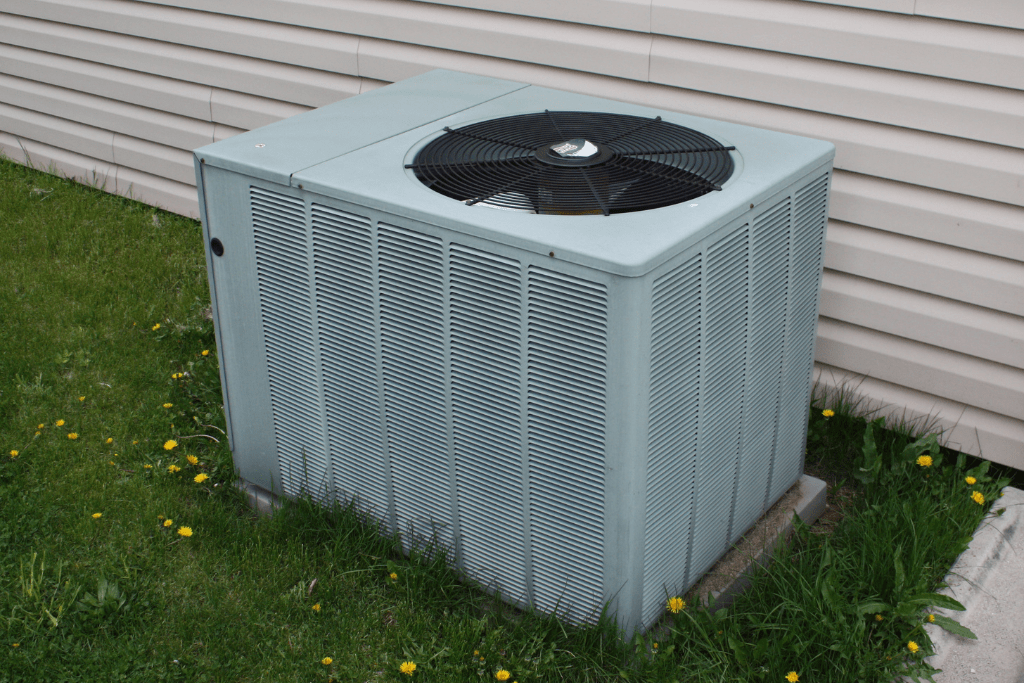
Are you dealing with an AC system that sounds like a freight train coming through your living room? No one wants that. Well, as air conditioners age, their components can wear down and start making all sorts of strange noises during operation.
It’s like your AC is telling you, “Hey, I’m working way too hard here!” Upgrading to a newer model will often bring peace and quiet back into your space since they’re designed to operate at much lower noise levels. Trust me, your ears will thank you!
7. Frequent Cycling
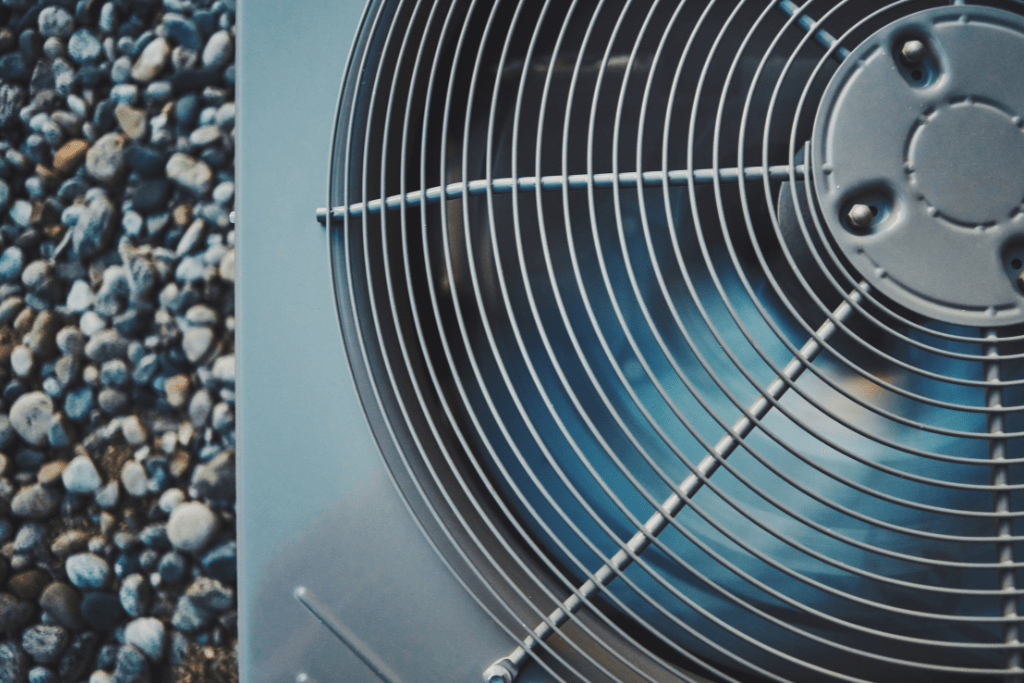
The central air conditioning system in your home operates in cycles. On a typical warm day, it’s normal for your AC to cycle on and off three or four times each hour. However, if your system is constantly starting and stopping, known as ‘short cycling,’ or if it runs continuously without reaching the desired temperature, it’s an indication that something isn’t right.
Frequent cycling not only disrupts your home’s comfort but also puts an immense strain on your air conditioning unit, leading to unnecessary wear and tear. This constant struggle can decrease your system’s efficiency, causing it to consume more energy to maintain the set temperature, and subsequently, driving up your energy bills.
Several factors can contribute to frequent cycling. One possibility could be an oversized AC unit. While a larger unit might seem like it would cool your home faster, the reality is that it could cool the area quickly and then shut off before completing a full cycle, only to restart a short time later.
On the other hand, an undersized AC unit might struggle to keep up with cooling demands, resulting in the system running continuously. Other issues, like refrigerant leaks, clogged filters, or thermostat problems, can also lead to frequent cycling.
Summary and Key Takeaways
Air conditioning plays a crucial role in our home comfort, especially during those hot, unforgiving summer months. But like any other system in your vintage home, your central AC won’t last forever, and knowing when it’s time to upgrade can save you from unnecessary discomfort and unexpectedly high energy bills.
From frequent repairs to a rise in energy costs, inconsistent temperatures to poor air quality, there are several telltale signs your AC system may be nearing the end of its lifespan. A particularly important sign to watch out for is frequent cycling—constantly turning on and off or running non-stop—which indicates your AC is struggling to maintain a consistent temperature. This can be due to numerous factors, including an incorrectly sized unit or even age-related inefficiency.
While some of these signs might just signal the need for repairs, when they start piling up or if your AC system is already around 15-20 years old, it might be more cost-effective to consider an upgrade. Investing in an energy-efficient model tailored to your home’s size and cooling needs can deliver enhanced comfort, potential savings on your energy bills, and the peace of mind that your AC system is less likely to let you down in the heat of summer.
Remember, home renovations and HVAC upgrades are not just about replacing old with new, they’re about enhancing the comfort, efficiency, and harmony within your home. If you think your AC might need an upgrade, don’t hesitate to consult with an HVAC professional who can guide you through the process and help you make the best decision for your comfort and your home.
Whether you’re dabbing sweat off your forehead in a sweltering room or just thinking ahead to the warm days of summer, we hope this blog post has given you a helpful insight into when it might be time to upgrade your central AC system.

